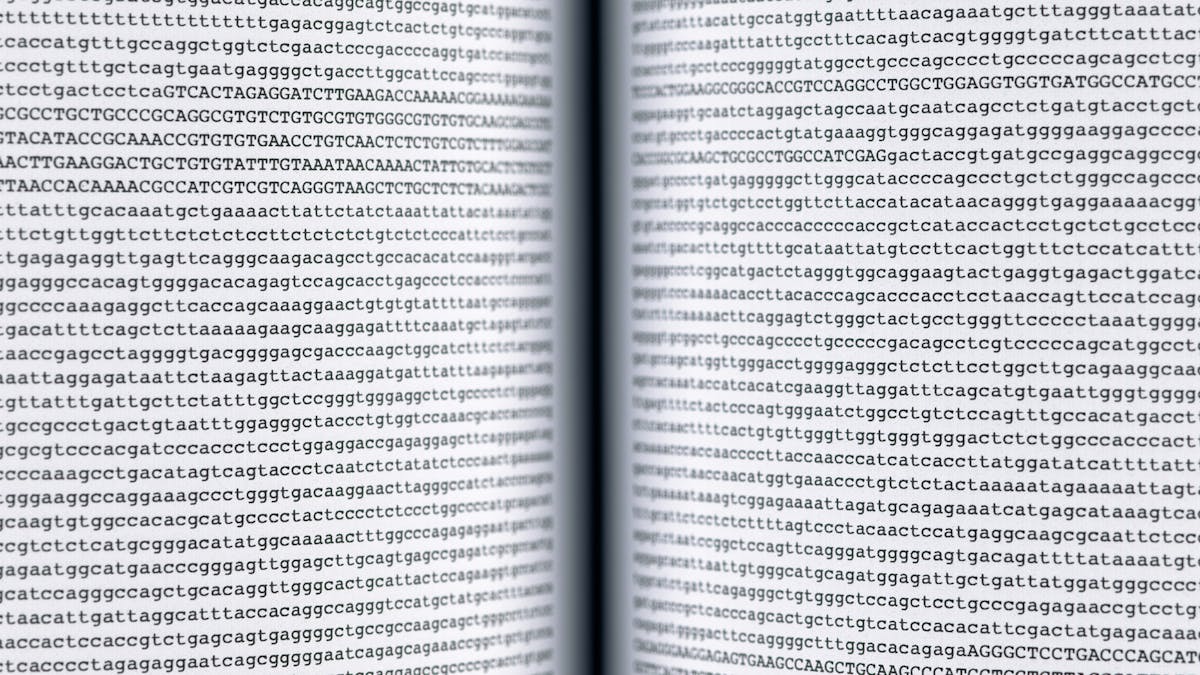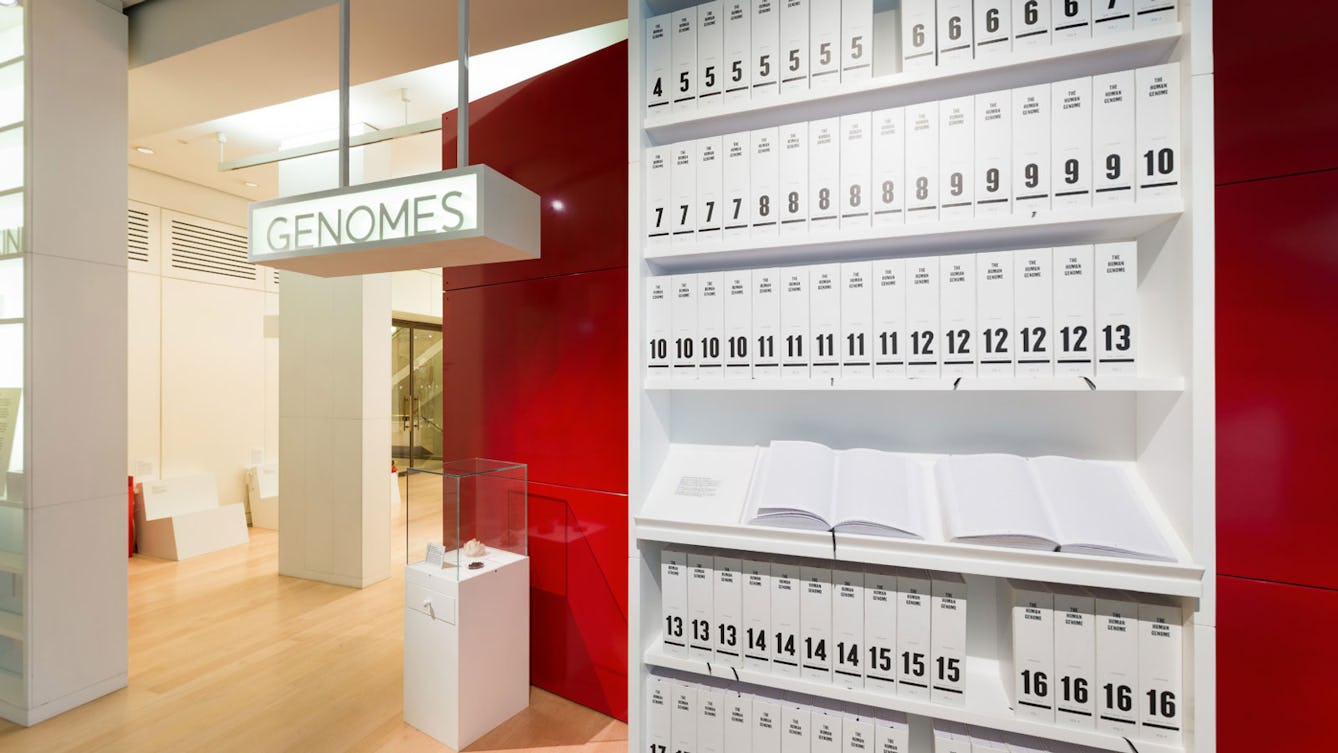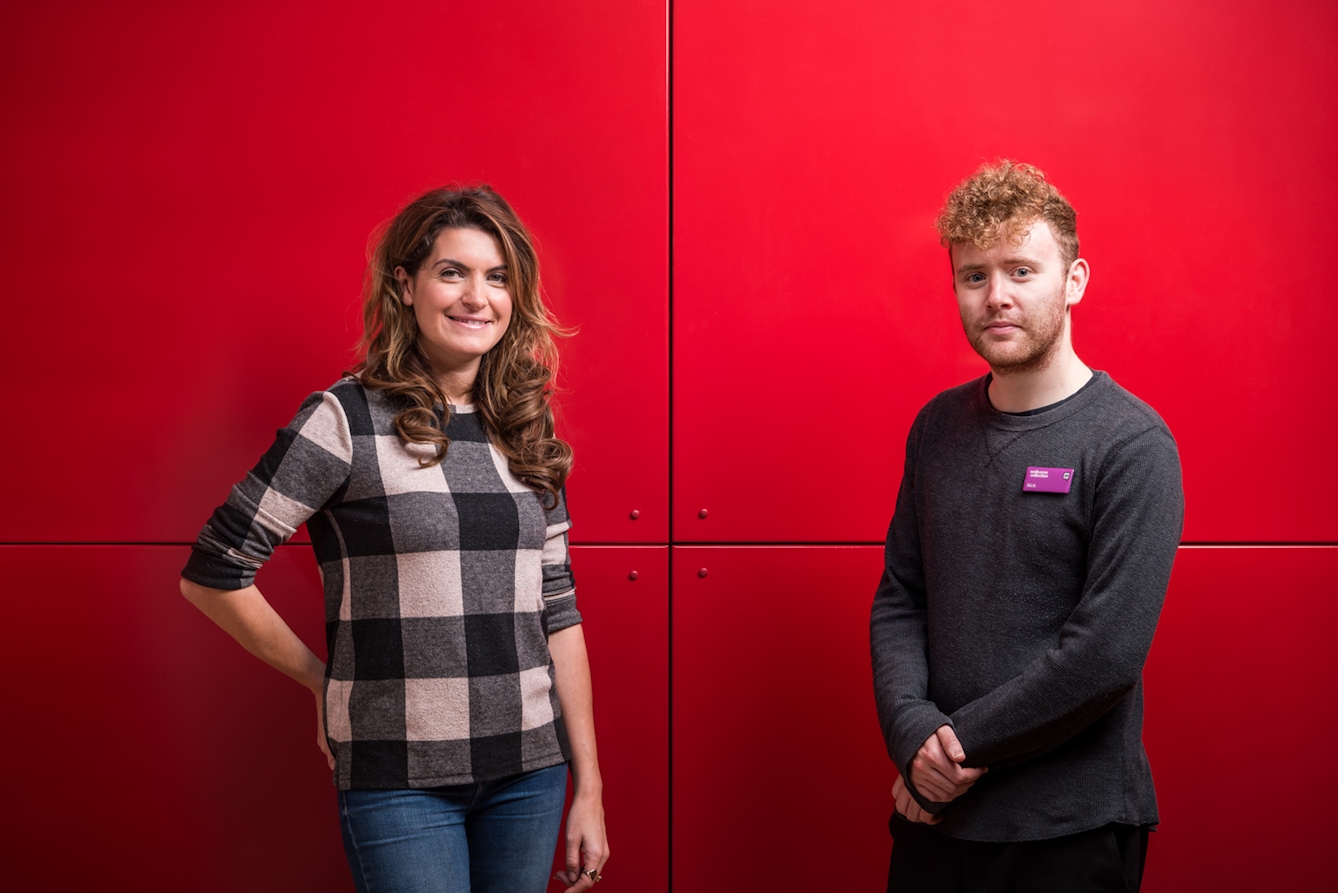For Why Music? The Key to Memory, a partnership with BBC Radio 3, we're exploring what four objects from our collection can tell us about how we remember. Take a look as Nick Dent tells Georgia Mann why the Library of the Human Genome holds a key to memory.

Listen
This essentially is instructions on how to build one person... There's been some evidence that perhaps the decisions we make in our lifetime will be remembered within our genes, and passed on to our children.
Take a look
The Library of the Human Genome is a towering bookcase that's filled with 109 large white books, organised into 23 volumes. Together they contain 3 billion tiny, tightly packed letters. The interactive image below shows it in our Medicine Now gallery. If you give it a spin you'll also see 'Jelly Baby' by Mauro Perucchetti (and our fancy spiral staircase).

Photography by Ben Gilbert and Thomas Farnetti for Wellcome Collection. Audio produced by Freya Hellier in collaboration with BBC Radio 3. Why Music? The Key to Memory takes places from 13-15 October 2017.
Full audio transcript

Georgia Mann and Nick Dent
[music]
Georgia Mann: I’m standing opposite an absolutely towering bookcase in the Medicine Now gallery here at Wellcome Collection. It’s quite white and stark and almost clinical looking around here. Nick Dent is with me, he’s a Visitor Experience Assistant. Nick, these books look very uniform, they’re all white, all numbered, what is this thing?
Nick Dent: So you’re looking at the Human Genome Project. This, essentially, if you were to follow it from start to finish is instructions on how to build one person.
[they take a book from the shelf and open it]
Georgia Mann: Volume 2, chromosome 15. I’m just opening this up and my eyes go funny the second I look at these pages, the typeface is just minuscule. And there’s reams and reams of little tiny letters: a a t t a t t c a g t t c a g g t t a t t c t g c t t a
Nick Dent: Yeah and those four letters make up the entirety of these books. There’s 109 books on this bookshelf, and crammed into them is 3 billion letters.
[music]
No one can read these really. Even top end scientists would struggle to really identify anything they fully understood in here. But every single person who comes up to this will still idly flick through the pages, reading these letters, as if they might glean some information.
Georgia Mann: Yes, pretending they know what’s in here.
[music and flicking through the pages]
I’m sure if we could spend well, I would say several hours, I think it’s more like several lifetimes, combing through these books, we might be able to spot some typos but Nick, you’re interested in epigenetics which I think looks at they way the human body deals with its own typos of sorts.
Nick Dent: So epigenetics, it’s something we know that genes do. It’s the alteration of genes in our lifetime. Say, we know smoking might have an epigenetic effect, turning off or on certain genes which might be bad for us. But what I’m interested in is the memory of this, because we all know our genetic code gets passed on to our children, and, up until recently, they thought that the inheritance of epigenetics - where our lives have influenced our genes - would be impossible to inherit. But there’s been some evidence that perhaps the decisions we make in our lifetime will be remembered within our genes and passed on to our children, and maybe even their children as well.
Georgia Mann: Bringing it back to the books that we’re looking at here, with this minuscule type and reams and reams of it, I would have imagined that the storage of information like this would have taken place on something computerised, a little memory stick perhaps?
Nick Dent: It’d certainly be more practical that way, but it seems less real. To write something down in a book seems to give it weight, it suddenly has proportions, it has mass. Whereas if this was just on a computer, I think most people wouldn’t even consider the enormity of what it is.
[music]